Deryck Whibley on the perilous personal journey behind Sum 41's 13 Voices
"It was like, 'Tomorrow, I'll deal with it.' In the end it sort of dealt with me"
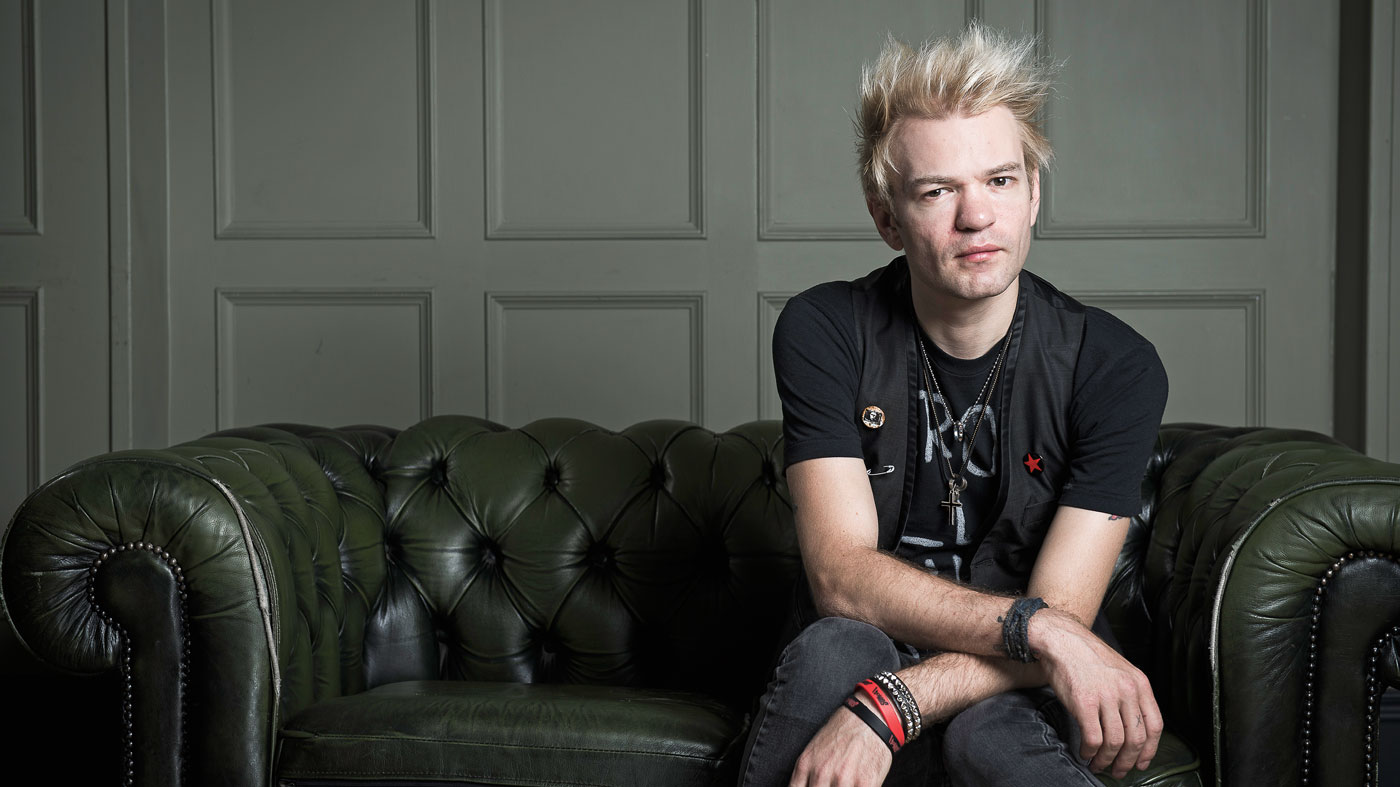
Introduction
Picture this: you’re at home, you pour yourself a drink, sit down to watch a film and then… nothing. For a week. You awake from a medically-induced coma to find yourself in hospital. You can no longer walk, you struggle to talk and you’ve lost the ability to play guitar – what’s more, you’re told these abilities may never return.
I couldn’t even play a G chord. That’s when I realised, ‘Oh man, I’m starting again on everything…
This is what happened to Sum 41’s frontman Deryck Whibley, who in 2014 was rushed to hospital for alcohol-related liver and kidney failure and kept in a coma for a week in the none-too-certain hope it would allow him to survive the withdrawal process. When Deryck awoke he found his second chance had come at a hell of a cost.
“I couldn’t even play a G chord,” recalls Deryck of his first months sober. “I knew where it was supposed to go but I couldn’t get my fingers to do it. That’s when I realised, ‘Oh man, I’m starting again on everything…’
Because before it felt like, ‘Well, I can’t move around, I can’t have conversations, but at least I can play guitar.’ Then I picked up the guitar and it was like, ‘No… I can’t!’ It was terrifying, because I didn’t know if it would take me years to learn again. That was probably the worst part of everything.”
Don't Miss
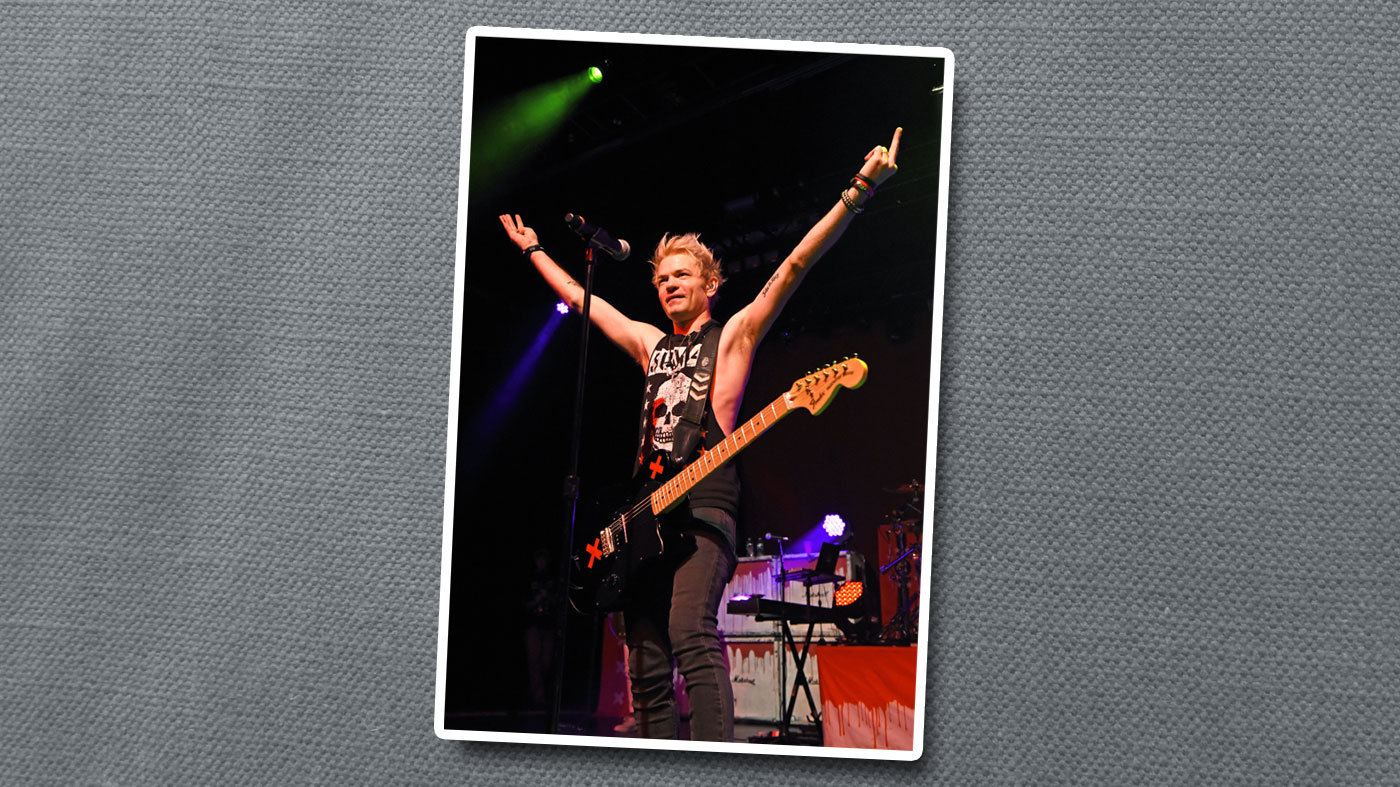
Reset
For better or worse, his physical and creative abilities had been totally reset. “I was at the same level as I was when I was 13, first trying to learn how to play.” he tells us. “I just practiced like I did when I was 13, every day! I had to build all of it back up over the course of the two years to make this record.”
I did the thing that you’re supposed to do when you have success, and bring people along that are close to you, only to find they all bailed on me.
Now sat in a tasteful, wood-panelled function room below his publicists’ London office, Deryck is discussing the resulting album, 13 Voices, and looking a lot better than the near-skeletal figure he was in his initial recovery days. The Deryck before us looks considerably less brittle. He keeps his head lowered as he talks, glancing furtively, or shifting on his chair when he recalls some of the more awkward details.
In the corner of the room sits Deryck’s mother, Michelle, who’s taking advantage of the trip to take in some sights. Today’s plan is the Saatchi gallery’s Rolling Stones exhibit. We must admit that interviewing an artist about their near-death experiences in front of their mum is new territory for us. It is, however, indicative of the super-tight ranks of Deryck’s new support network.
“The first track [on the new album], Murder Of Crows (You’re All Dead To Me), is about a group of people,” he reveals. “You know, I did the thing that you’re supposed to do when you have success, and bring people along that are close to you, people that I grew up with – only to find out that when things got difficult and the party was over, they all kind of bailed on me. But not only that, they’d been stealing from me and using me. It’s like if you watch the show Entourage, and at the end discover that Ian, Turtle and Drama have been stealing from him the whole time. It’s like, ‘That’s not how it’s supposed to end!’”
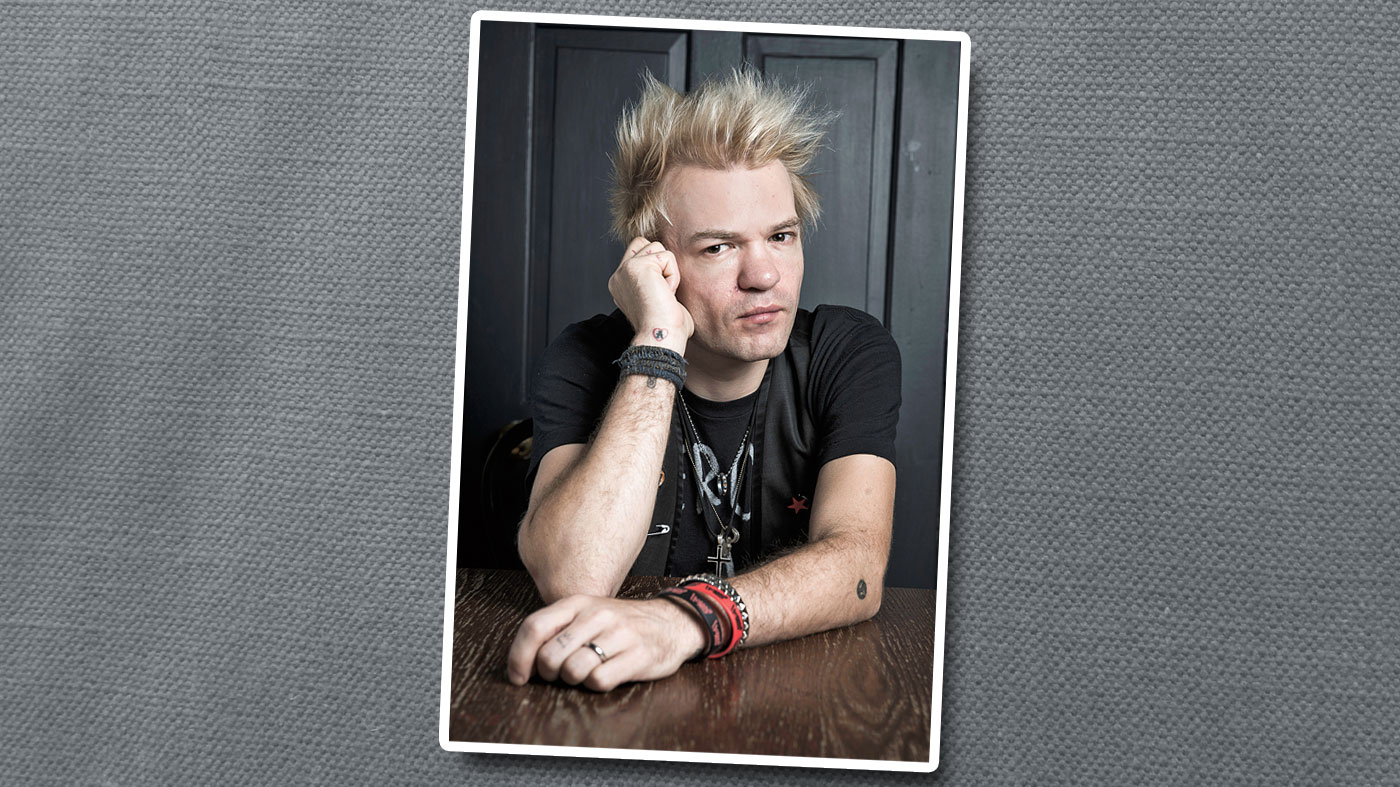
Nearest and dearest
The experience led to a ruthless reevaluation of his friends and family and the construction of a new support network consisting of just his nearest and dearest, with his mother and his fiancé (now wife) Ariana Cooper at its core.
That’s one thing about when you get sober: you realise you have no time for bulls**t any more
Support also came from an older friend, ex-Sum 41 guitarist Dave Baksh, who has since rejoined the band. The two had rekindled their relationship prior to Deryck’s hospitalisation, but as Deryck began piecing back together his life and then the group’s new album, their reunion found renewed vigour.
“That’s one thing about when you get sober: you realise you have no time for bullshit any more,” adds Deryck. “With Dave, he’s such a good guy. It was great to have him back around and he was someone that I had missed for a long time.
“Once I got out of hospital, Dave came to see me and that was the first time I’d seen him in about nine years. He stayed for about four or five days and [eventually] it was like, ‘Why aren’t we playing with each other anymore? This doesn’t make any sense.’”
We ask what reaction Dave might have had to Deryck, given the frontman was still in the very early stages of his recovery at that point.
“Well, I was in rough shape, so I think he was a bit surprised to see how bad it was,” acknowledges the guitarist. “But it was very typical Dave. He’s just got a big smile and was very positive. I don’t think I even really noticed until later on how surprised he was to see me in such a rough shape, because he didn’t give that impression to me at first. It just seemed like, ‘Hey Dave!’ A big hug and catching up.”
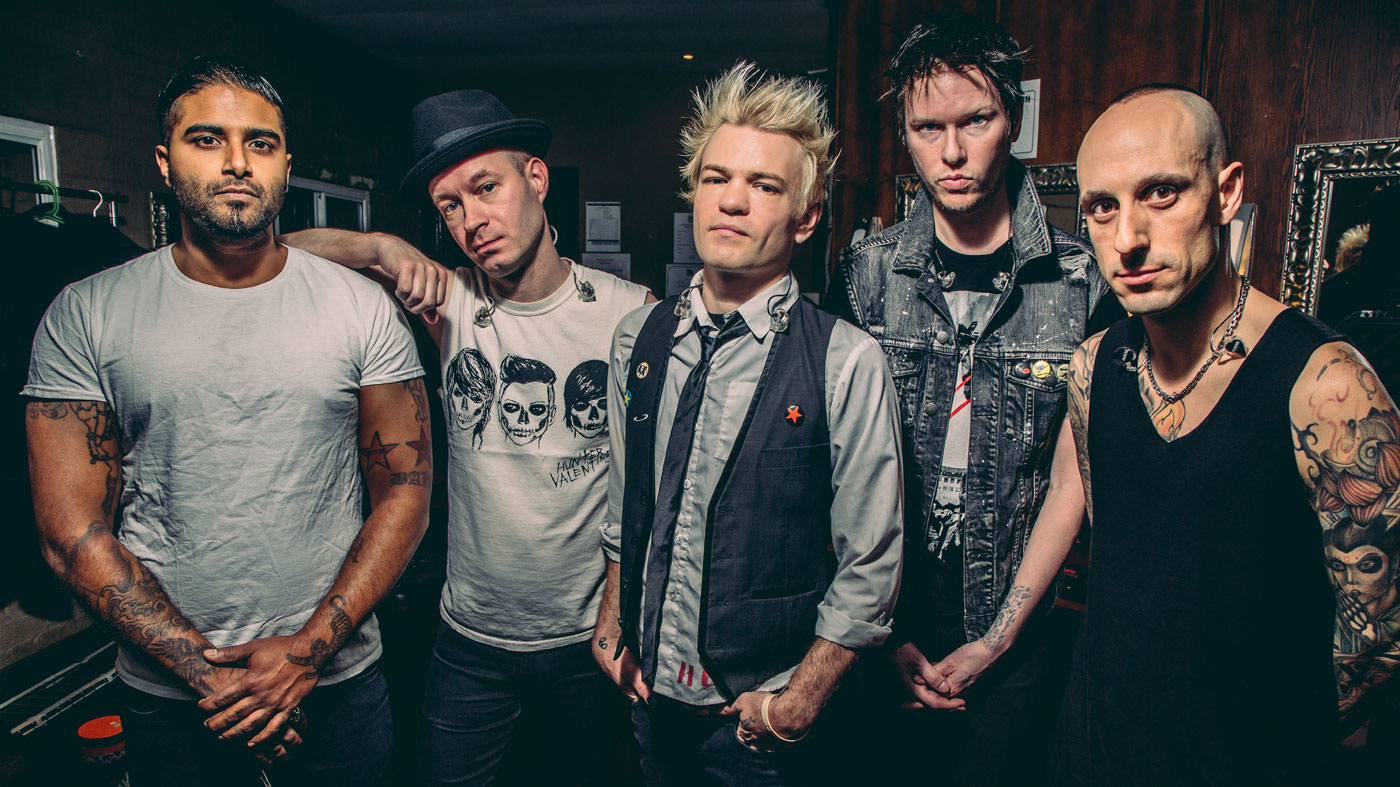
Triple threat
Sum 41 might have emerged with the early-00s pop punk wave, but it was their playing ability and Whibley’s mood-spanning writing that helped the band step beyond the confines of that scene, selling millions in the process.
Baksh was always the band’s most technically gifted guitar player, so his reintroduction to a band that already included his replacement, Tom Thacker, meant the way was paved for triplepronged guitar theatrics.
I heard Dave's solo all the way through and I almost had a tear. I was just like, ‘It’s perfect!’
“They’re both phenomenal guitar players,” says Deryck. “They both do totally different things. Tom’s got this sound and he’s really good at picking things. Like Fake My Own Death, the riff off the top, that’s Tom, because the way he picks is aggressive and hard. Then Dave is great on those solos – he’s just so fluid on all that stuff.”
The guitar centrepiece is second track, Goddamn I’m Dead Again - a storm’s-abrewing punk thrasher that takes its cues from Does This Look Infected?-era Sum 41, before the competing vocal layers give way to a wah-dominated minute-long Baksh solo. It was the first track Baksh played on, and one hell of a flag in the sand.
“I’d already written the song and then left the last two minutes as a guitar solo for him,” explains Deryck. “He’d never heard it before he found out that he was going to record on it. I just said, ‘Okay, here you go. I’m heading out for the day.’ I basically gave him about 12 hours while I was gone and when I came back at 1am, I could hear it from outside, he was still blasting guitar! I heard it all the way through and I almost had a tear. I was just like, ‘It’s perfect!’”
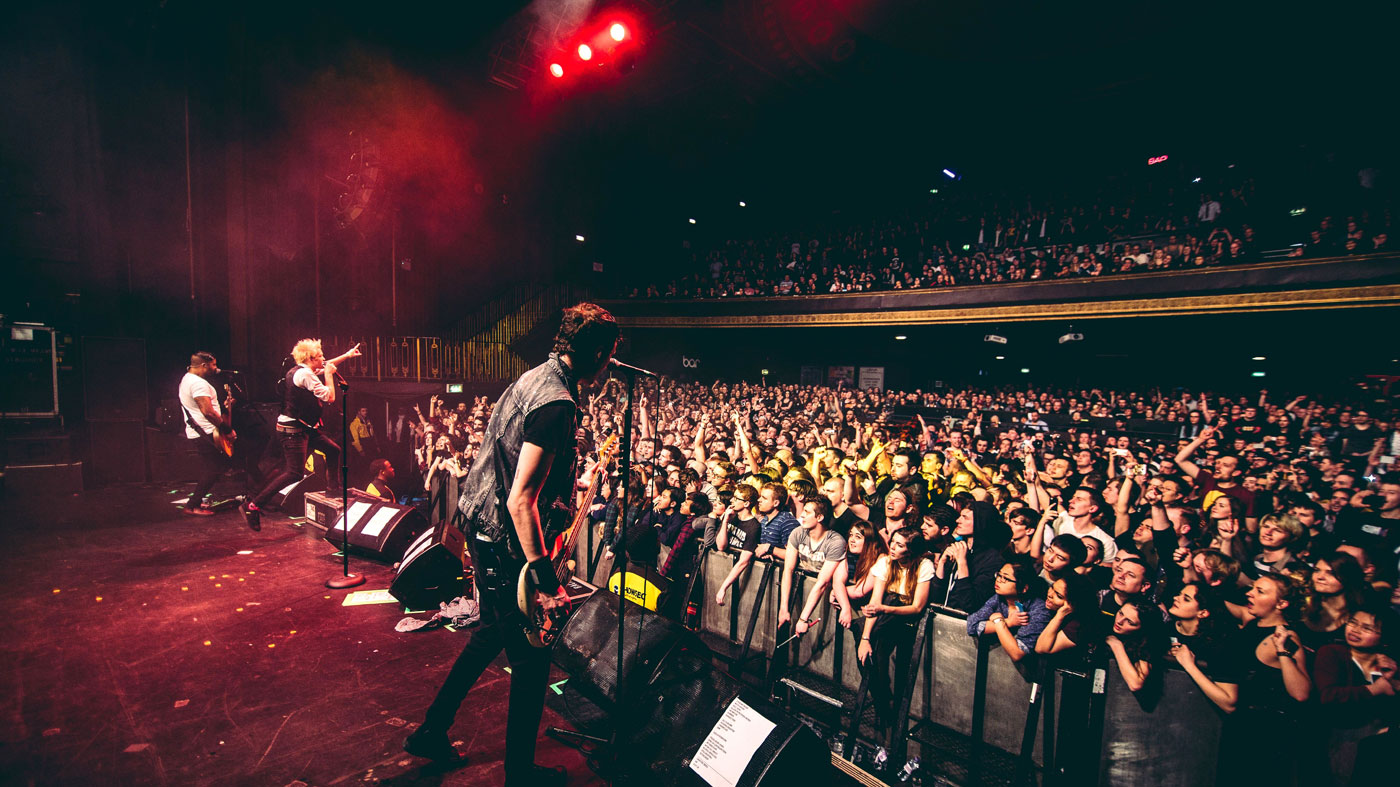
Combo amps
The whole album was recorded in Deryck’s house, which enabled him to immerse himself fully in the process, surrounded by perhaps his most faithful friends: his gear.
Something new was the Kemper, for lead sounds on certain solos. I’ve found that they cut through all the mic’d amps really well
“All the main guitars, all the rhythm guitars, are my Les Paul,” he tells us. “I got it in 2001 when All Killer… came out. It’s a ’59 reissue and I’ve used it on every album since then, so it’s usually Gibson for the distorted stuff and then I use Teles for the overdriven or clean sort of sounds.”
We’re glad Deryck mentions All Killer… because it reminds us that even in their Fat Lip days, Sum 41 have always had the kind of colossal, chiming tone that made their contemporaries sound like wasps in tin cans. What’s the secret there?
“The amps are usually Marshalls, but they’re combinations of things,” says Deryck. “Every song usually has a different amp and sound, so I’ve my metal amps - my Diezel, VHT, Rectifier, then my Marshall Valvestate – so a lot of it is like a Diezel, with one of my many [traditional] Marshalls - whether it’s a JMP, my Super Bass that’s modded, an [JCM]800, my Slash, and I’ve got two ’59 Plexis that are modded and my Super Lead. I kind of bounce between all of them. Then something new was the Kemper, for lead sounds on certain solos. I’ve found that they cut through all the mic’d amps really well.”
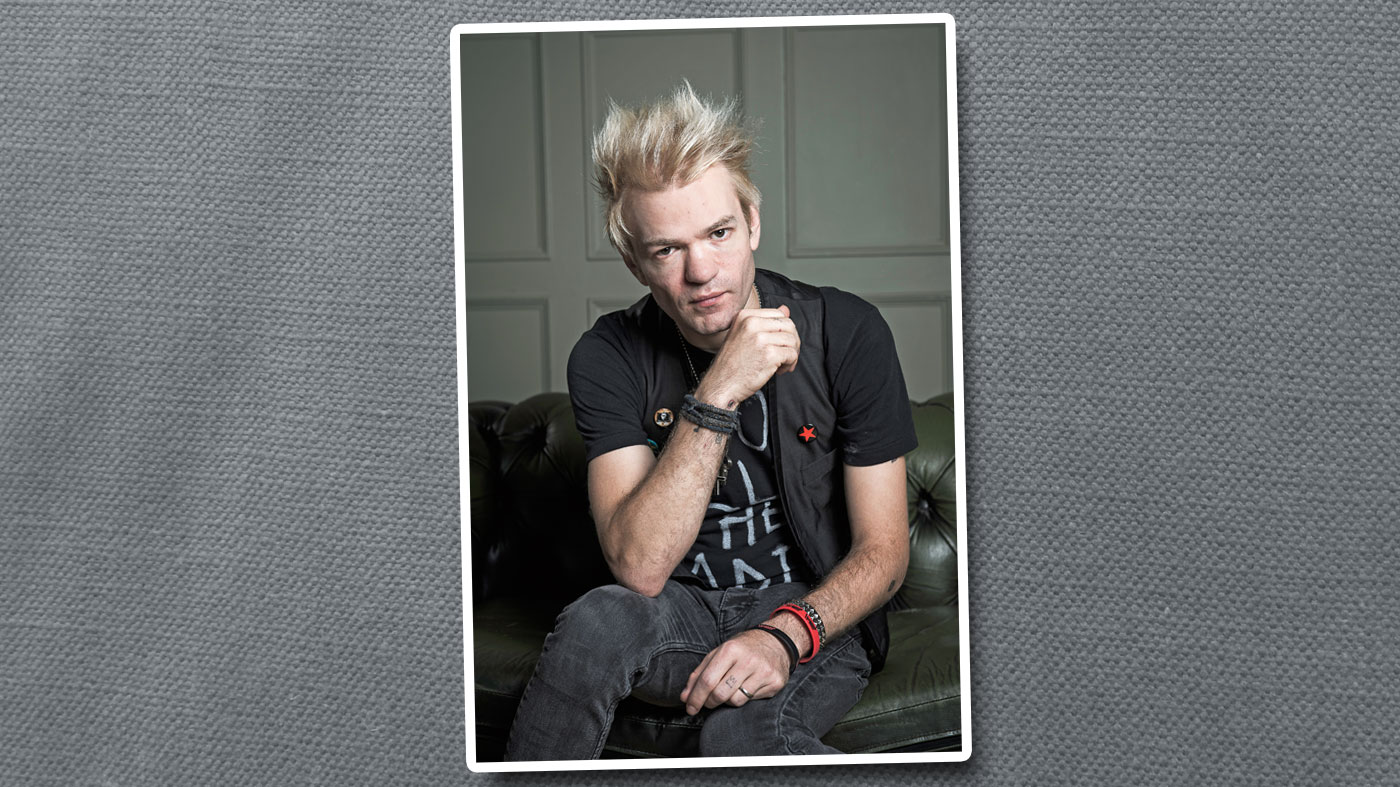
A maddening process
It’s an impressive arsenal. However, having the home studio at his disposal had it’s downsides for Deryck, too. Sum 41’s last album was 2011’s Screaming Bloody Murder and, knowing he was writing, the rest of the band were eager to get going on new music.
“Everyone around me was so curious to know very early on what I was writing and they wanted to hear stuff, but it was way too early,” says Deryck.
You see crazy people on the street and you think, ‘Is it happening to me now? Have I done something to my brain?’
“I was just like, ‘Okay, if you wanna hear something, this is not a great idea, but it’s what I did today…’ And they would be like, ‘Oh…’ I’d be like, ‘This is why I don’t want to show you stuff!’ It would deflate me, because I was like, ‘I’m still just learning how to play guitar again, I’m still just learning how to write again. I’m not ready to be showing stuff!’ I cut everyone off after that.”
The doubt dogged Whibley throughout the first year of his recovery. In the days he’d be learning how to walk in painstaking physical therapy sessions, before heading into the studio to work from 5pm to midnight and then heading to bed to lie awake secondguessing his creative work. The process was less ‘R&R’, more just: ‘Argh’.
“I was getting delirious through the whole thing, which definitely wasn’t helping with my sanity,” he confesses. “If you get to the middle of the record, that’s the point where I literally thought I might be going crazy. There Will Be Blood was about all of the nightmares I’d have at night when I would finally get to sleep. Then 13 Voices is really me thinking that I might be becoming schizophrenic, which has always been a fear. You see crazy people on the street and you think, ‘How did they get there? Is it happening to me now? Have I done something to my brain in all that craziness…?’”
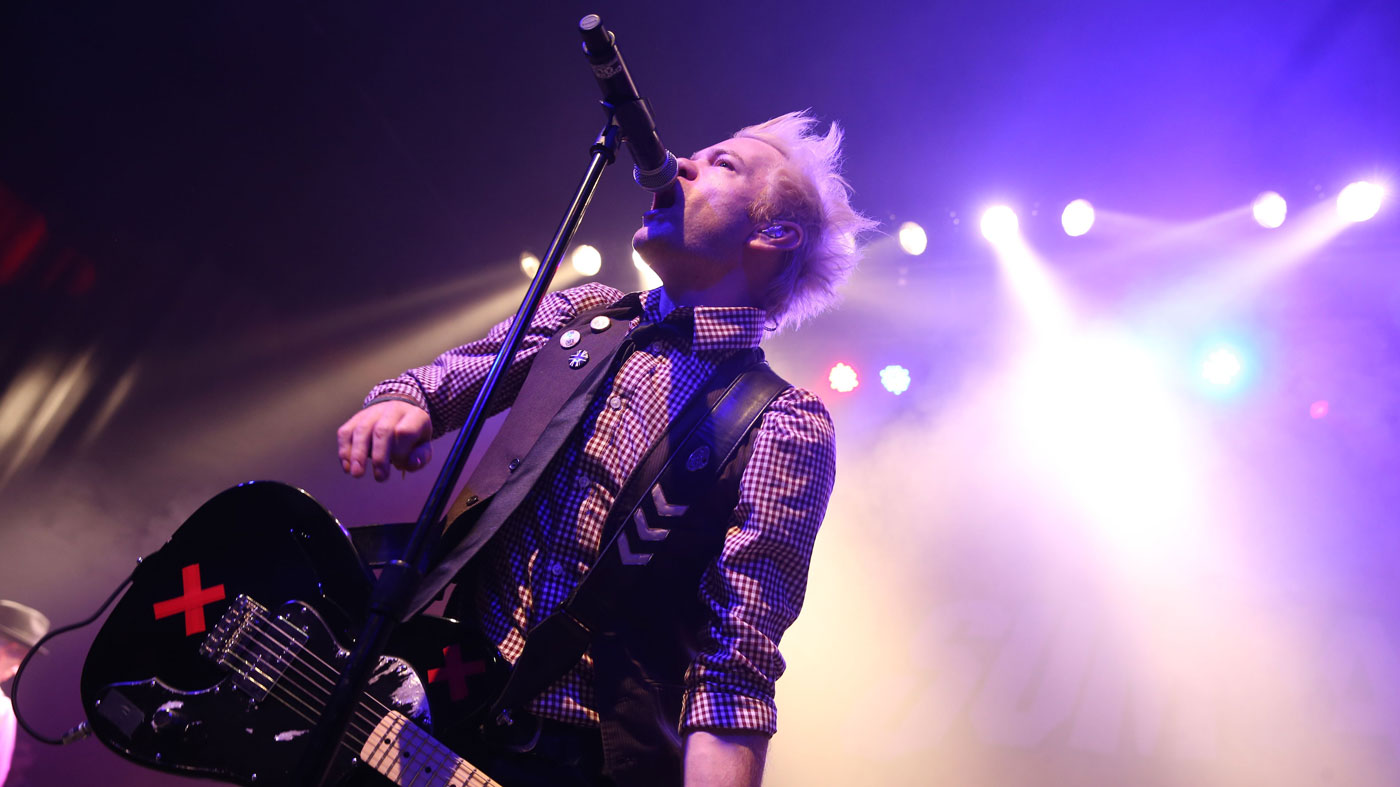
Words of wisdom
We tell Deryck that a line from Goddamn I’m Dead Again – ‘Take a look around you really blew it all to hell/ What’s the point of trying unless you’re going to do it well?’ – seems particularly resonant to the whole process.
There were moments, a lot on this record, where you could fall back into it and just give up, because it almost seemed like a better option
“For me, it’s one in [final track] Twisted By Design,” responds the songwriter. “‘Is it a threat? Is it a cure? It’s a brave new world I’m not sure that I’m ready for’. That was one of the first lyrics I wrote for the record. And that sort of stuck with me, because it was a new journey, I wasn’t quite ready for it, you know?
“I always knew that I drank and partied a lot and that one day I would sort it out, that you can’t keep it up forever, but that’s in the future, I’ll deal with that soon, you know?”
The smoker’s promise? “Exactly. Like, ‘Tomorrow, I’ll deal with it.’ In the end it sort of dealt with me and I was not quite ready for it yet. At that time it was terrifying – and it may not seem that way to the outside world – but for me it was. There were moments, a lot on this record, where you could fall back into it and just give up, because it almost seemed like a better option. After about a year or so, when I still wasn’t getting any better, it felt like, ‘It’s not going to happen. I’ve just screwed myself and I’ll be like this forever’.”
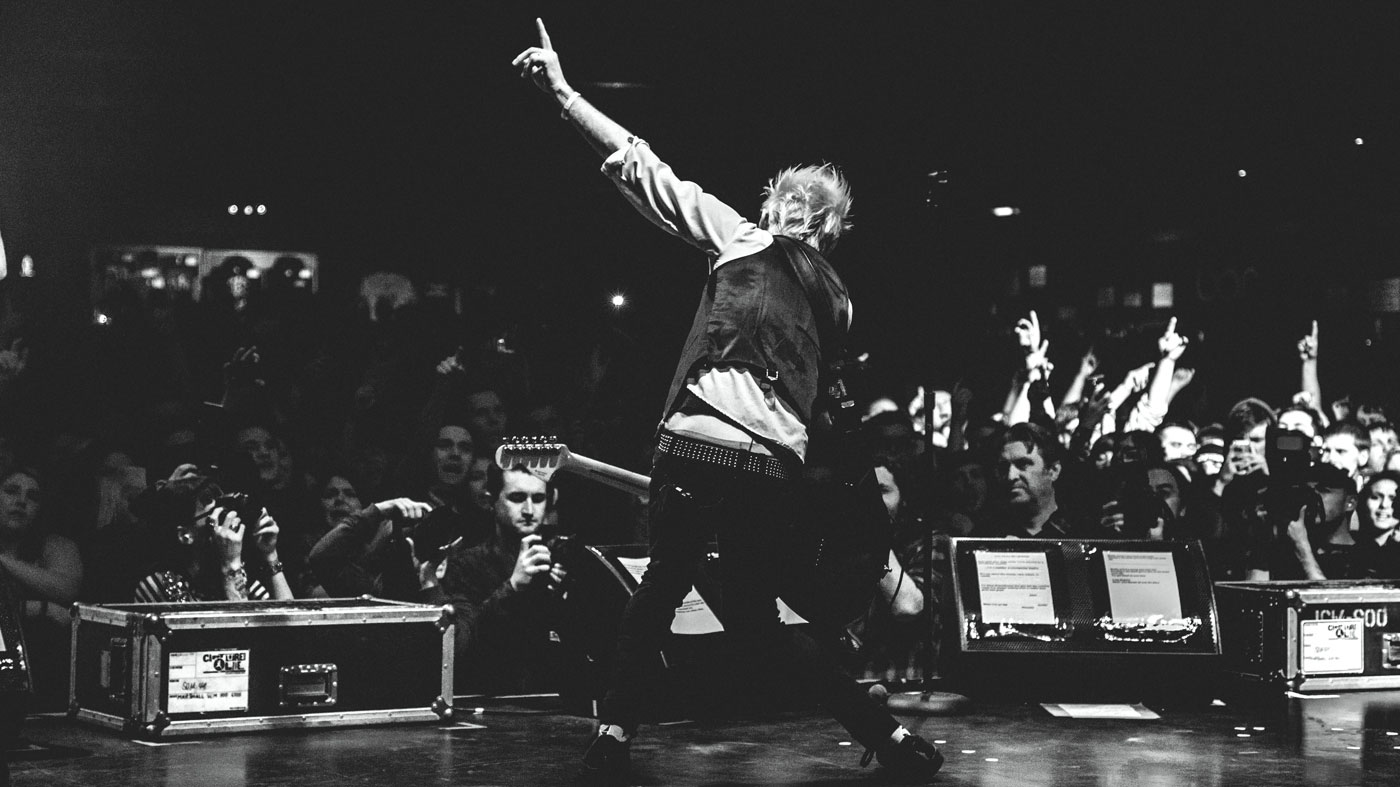
Mended by music
Now sitting on a new album, a recovery and the other side of the summer’s gigantic Warped Tour, Deryck’s somehow achieved what he set out to do in those early days.
It’s no mean feat and, ultimately, it seems it was a deeply-ingrained desire to create, to write, to play guitar again that drove him to climb out of a seriously deep hole.
At that moment, it was easy just to let it all go, but for some reason these lyrics came to me. I was just like, 'I’ve got to write all this down'
“It was definitely music,” says Deryck, without hesitation. “There was a song called War that was written in one of those dark moments. It was four in the morning and I could have easily just fallen off [the wagon] at that minute, you know? At that moment, it was easy just to let it all go, but for some reason these lyrics came to me and I was just like, ‘I’ve got to write all this down’.
“When I read it back it was like, wow, this is my battle cry. I have these lyrics and it would be stupid if I go this way. I’ve got this song that I’ve got to record – I’ve got to live up to my own words.”
Sum 41’s new album, 13 Voices, is available now on Hopeless Records.
Don't Miss
Matt is a freelance journalist who has spent the last decade interviewing musicians for the likes of Total Guitar, Guitarist, Guitar World, MusicRadar, NME.com, DJ Mag and Electronic Sound. In 2020, he launched CreativeMoney.co.uk, which aims to share the ideas that make creative lifestyles more sustainable. He plays guitar, but should not be allowed near your delay pedals.


